Recent research published in BMC Geriatrics discovered that 29.2% of seniors who lived alone during the pandemic experienced difficulties with activities of daily living (ADLs).
Facing issues ranging from arthritis and falls to dementia and depression, it’s not surprising that so many aging seniors begin to struggle with essential daily tasks like showering, getting dressed, using the bathroom, cooking, and moving around their homes.
What Is Occupational Therapy?
Occupational therapy is a type of rehabilitation focused on empowering patients to complete their personal everyday essential tasks known as ‘occupations.’ For seniors, the primary goal of occupational therapy is typically to develop the skills and strategies needed to perform ADLs as independently and safely as possible. Occupational therapists can also assess how a patient’s physical environment can be better adapted to meet their needs.
Occupational therapy care plans are highly tailored to individuals’ unique needs, considering their personal goals, wishes, health conditions, and daily activities. Occupational therapists may also work with a senior’s support system, including physicians and family caregivers, helping their patients receive the appropriate care and support.
How Can Occupational Therapy Support Seniors?
Many seniors struggle with ADLs at some point during their retirement. This could be due to a short-term illness or injury like a fall, surgery, a cardiac event or a chronic health condition like arthritis, Alzheimer’s, or Parkinson’s disease. The highly personalized nature of occupational therapy makes it suitable for seniors with various health conditions, lifestyles, and goals.
Benefits of Occupational Therapy for Seniors
Making Daily Living Less Stressful
Occupational therapy aims to make life less daunting and challenging for patients. For seniors with reduced mobility, cognitive decline, or an acute or chronic health issue, simple everyday tasks like getting into bed and preparing food can feel overwhelmingly exhausting. In turn, seniors may become isolated and less able to enjoy the hobbies and social life they once could. Occupational therapy can have a positive snowball effect; by equipping them with the knowledge, skills, and equipment to make the small tasks easier, seniors are left with more energy to enjoy the retirement they genuinely deserve.
Promoting Independence and Autonomy
Retaining a good level of autonomy and freedom is exceptionally important to many seniors. After all, they might have spent their whole lifetime building a career, raising a family, and solving problems independently. To have this taken away due to physical, cognitive, or mental health issues can leave seniors feeling out of control or even lacking a sense of individuality and purpose.
Before any practical work, an occupational therapist will consult with a senior patient and oftentimes their family caregivers to devise a personalized support plan. During this session, the patient can discuss what they struggle with most and let the therapist know what they’d like to achieve. With this tailored support, seniors can regain their lost independence and control.
Providing Vital Home Modification Guidance
As a rehabilitative therapy that considers the whole person, their support system, and their physical environment, occupational therapy can provide valuable guidance on home adaptations for seniors and family caregivers. Home modifications like grab bars, zero transition flooring, and wheelchair-accessible showers can be expensive and time-consuming to fit, so having an expert offer advice can be helpful. With vast knowledge and experience, an occupational therapist can envision cost-effective solutions that family caregivers haven’t considered.
Offering Valuable Emotional Support
Losing the ability to carry out ADLs can be challenging for seniors, and many feel embarrassed or reluctant to admit how much they’re struggling. They may also feel like they’re burdening family caregivers with their difficulties. An occupational therapist can be a trusted and impartial confidant, offering valuable advice and encouragement.
Who Can Benefit from Occupational Therapy?
Seniors in countless situations can benefit from occupational therapy, including:
-
-
- Seniors who have frequent falls or those recovering from a recent fall.
- Seniors with cognitive decline due to Alzheimer’s or another form of dementia.
- Seniors with poor mobility or dexterity.
- Seniors with a chronic or progressive illness like arthritis or Parkinson’s disease.
- Seniors with sensory impairments like loss of vision.
- Seniors living in their own home or a senior living, skilled nursing, or memory care community.
-
Occupational Therapy at Chapin Home for the Aging
Chapin Home is proud to offer a range of rehabilitative therapies for our short and long-term residents. Using a combination of physical, speech, and occupational therapy as needed, our experts produce care plans designed to promote mobility, flexibility, agility, strength, and confidence. Open six days a week, our rehabilitation center is a much-needed lifeline for seniors in the Queens area.
Our state-of-the-art Activities of Daily Living Kitchen is available to help seniors learn how to complete practical daily tasks in a safe and supported environment. Seniors benefitting from our rehabilitation services include long-term senior living residents, plus short-term skilled nursing patients recovering from illnesses, accidents, injuries, or surgeries whose ultimate goal is to regain complete independence and return home. Additionally, our rehabilitative care extends beyond seniors; we also offer a detailed education program to help family caregivers appropriately support their loved ones.
Explore our website to learn more about our occupational therapy and rehabilitation center. Start a live chat or give us a call today to organize an in-person guided tour of Chapin Home’s cutting-edge skilled nursing and memory care home.

